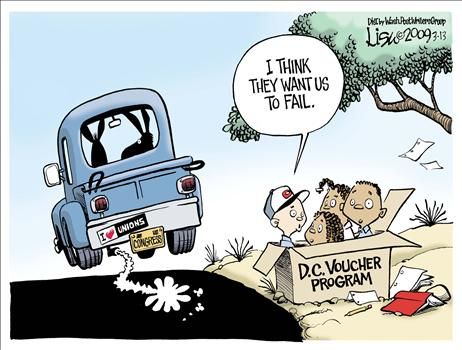How can we reform U.S. K-12 education so that U.S. students will be competitive with Finnish teenagers? Technology -- particularly online education, say Terry M. Moe and John E. Chubb, authors of "Liberating Learning: Technology, Politics, and the Future of American Education."
Technology holds two potentially dramatic benefits, say the authors:
- One is simply a general improvement in education as students from "anywhere -- poor inner cities, remote rural areas, even at home" gain access to high-caliber instruction.
- More important, is technology's ability to destroy the political barriers that prevent education reform.
- In 1995, Midland, Pa., a declining steel town on the Ohio border, launched the Pennsylvania Cyber Charter School.
- Today the online school serves 8,000 students throughout the state; and the classes aren't just digital correspondence courses -- there are textbooks and live educators, including "synchronous teachers," who work with students through instant messaging, voice and interactive whiteboards while the kids are engaged with their lessons online.
- Advisers are required to communicate with students' families at least once a week by email and once every two weeks by phone.
- As for results, even though the school's demographics are average or even below average, Cyber was rated as having made Adequate Yearly Progress (AYP) in No Child Left Behind, hitting all 21 educational targets.
- By contrast, barely half of Pennsylvania's bricks-and-mortar schools received the AYP rating; on SAT tests, Cyber students scored 97 points higher than the state average.
Teachers unions, of course, are appalled...
READ MORE
image toon - edu - Dems love unions and drop DC voucher kids off














No comments:
Post a Comment